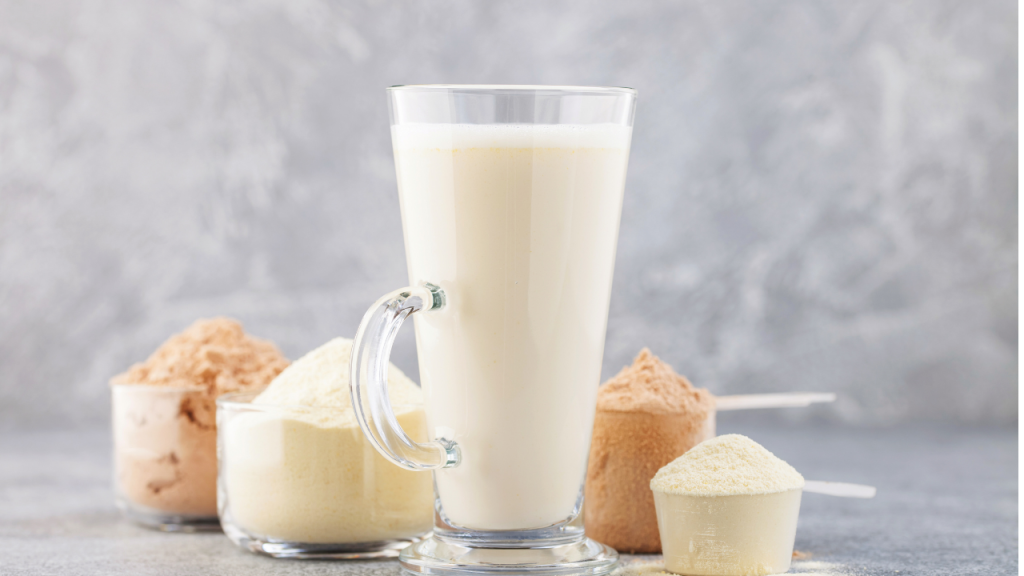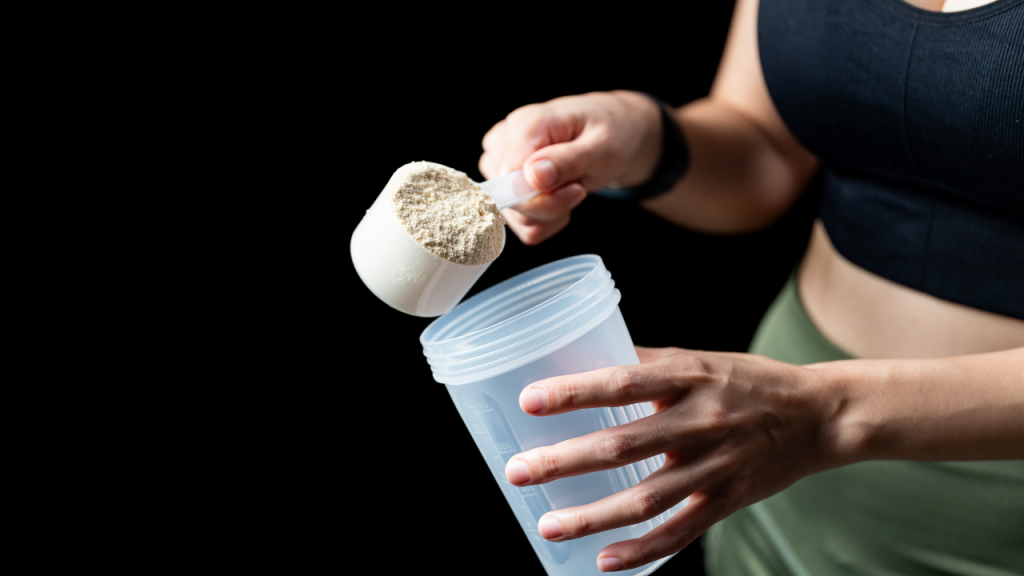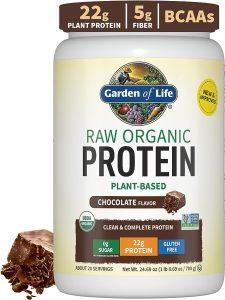In the bustling world of fitness and nutrition, protein shakes have carved out their niche, becoming as essential to gym-goers as the equipment itself. But with a myriad of options and advice, figuring out the right amount for your unique needs can feel like navigating a maze. This guide aims to demystify protein shake consumption, helping you find the perfect balance for your body.
Key Takeaways:
- Understanding the role of protein shakes in your diet and how they can help meet your nutritional needs.
- Learning how to calculate your protein requirements and how protein shakes can fit into this.
- Recognizing the signs of both protein deficiency and excess, so you can adjust your intake accordingly.
The Vital Role of Protein in Your Diet
In the intricate tapestry of your diet, protein plays a pivotal role, essential not just for the repair of tissues but also as the building block for enzymes and hormones, and as a stalwart supporter of your immune system. Particularly for those who lead an active lifestyle, protein becomes the cornerstone for muscle recovery and growth, a silent yet powerful ally in your fitness journey.
In scenarios where whole food sources might not suffice or when time constraints loom, protein shakes emerge as a convenient and efficient way to ensure your body gets this vital nutrient. They bridge the gap in your dietary needs, offering a quick and effective solution to keep your protein levels optimal.
Calculating Your Protein Needs
Nailing down your protein needs is like fine-tuning your diet’s engine for peak health and fitness performance. The RDA recommends consuming at least 0.8 grams of protein per kilogram of body weight as a starting point, but this is just the bare minimum needed.
If you are constantly engaged in intense physical activities or focusing on building muscle, your body’s protein requirements may increase. This can range from 1.2 to 2.0 grams per kilogram of body weight. It’s about tailoring your protein intake to match the rhythm of your active lifestyle or your bodybuilding endeavors.
Types of Protein Shakes: A World of Choices
In the diverse universe of protein shakes, the options are as varied as the colors in a painter’s palette. From the popular whey protein, renowned for its rapid absorption, making it a go-to for post-exercise recovery, to the slow-releasing casein, perfect for those moments when you need a sustained protein hit – perhaps as a meal substitute or a pre-slumber treat.
Then there’s the world of plant-based proteins like soy and pea, catering to vegans and those with dairy aversions, each bringing its unique profile to the table. This variety ensures that, regardless of dietary preferences or lifestyle, there’s a protein powder out there tailored to meet your specific nutritional needs and goals.
Aligning Protein Powder with Dietary Needs
Timing Your Protein Intake: When to Drink?
The question of when to drink a protein shake is akin to finding the right rhythm in a dance. Post-workout, it’s like striking a chord at the perfect moment – that’s when your muscles are most receptive, eagerly soaking up protein for recovery as blood flow is at its peak. Think of it as giving your muscles a much-needed nutrient hug after a strenuous workout. On days when the gym isn’t on your agenda, the clock isn’t ticking quite as loudly.
These rest days offer more flexibility, allowing protein shakes to seamlessly blend into your diet, filling in nutritional gaps as needed. It’s less about timing and more about consistent nourishment, ensuring your muscles stay fueled and ready for whatever comes next.
Protein Shake Frequency: Finding Your Rhythm
Determining the frequency of protein shake consumption is a dance with your body’s unique rhythm and fitness aspirations. For many, a protein shake serves as a rejuvenating elixir post-workout, aiding in muscle recovery and replenishment. If your workout routine is intense and regular, capturing the golden window of 30 minutes to an hour after exercise with a protein shake can be crucial for optimal recovery and muscle growth.
Beyond the realm of workouts, protein shakes also step in as convenient, nutrient-packed allies in the hustle and bustle of daily life, doubling as quick snacks or meal replacements. They adapt to your schedule, providing nutritional support whenever and wherever needed, aligning with the ebb and flow of your active lifestyle.
Avoiding Overconsumption: The Importance of Balance
Protein shakes provide convenience and effectiveness in fulfilling your daily protein requirements, but they should be used as supplements and not substitutes for the diverse range of nutrients found in whole foods. It’s crucial to maintain a dietary equilibrium; think of protein shakes as supporting actors rather than the lead in the nutrition narrative of your life. Overindulging in shakes can tip the scales towards nutrient imbalances, depriving your body of the diverse array of vitamins, minerals, and other nutrients that whole foods naturally provide.
If you are considering adding several shakes to your daily routine, it is smart to pause and evaluate how much protein you are consuming overall. This mindful approach ensures you’re nourishing your body adequately without overstepping the boundaries of your nutritional needs, striking a delicate yet essential balance for optimal health.
Customizing Your Protein Shake Routine
Crafting your protein shake routine is akin to personalizing a workout plan – it should align seamlessly with your health goals and dietary needs. If you’re on a quest to build muscle, incorporating a daily protein shake could be your golden ticket to meeting those heightened protein demands. On the flip side, if weight loss is your target, a well-timed shake can be a strategic ally in managing hunger pangs, all while keeping your diet balanced and nutritious.
And remember, the world of protein is rich with variety – you’ve got the fast-acting hero whey, the slow and steady casein, and the plant-powered trio of soy, pea, and hemp. Every type of protein powder has its unique advantages, offering you the flexibility to tailor your protein consumption to fit snugly with your specific dietary requirements and aspirations. It’s akin to having your very own protein smorgasbord, where you have the liberty to select the options that resonate most with your health journey.
Enhancing Your Shake: Beyond Just Protein
Think of your protein shake as a canvas, awaiting the vibrant strokes of fruits, the lush greens of vegetables, or the rich textures of healthy fats to transform it into a masterpiece of nutrition. By infusing your shake with a variety of ingredients, you’re not just enhancing its flavor profile; you’re elevating it to a more complete and balanced meal.
This culinary experimentation not only injects a burst of excitement into your daily routine but also ensures a sustainable approach to your dietary regimen. Whether it’s the sweetness of berries, the earthy goodness of spinach, or the creamy indulgence of avocado, each addition contributes to a symphony of tastes and nutrients, making every sip a delightful and nourishing experience.
Protein Shakes and Weight Management
Protein shakes have become a versatile ally in the journey of weight management, adept at playing dual roles. For those on the path to weight loss, these shakes can step in as low-calorie yet nutrient-rich meal replacements, offering a sense of satiety without the calorie overload. On the flip side, for individuals aiming to gain weight, protein shakes are like a secret weapon, packing in extra calories and protein while skillfully bypassing the discomfort of excessive fullness.
However, the key to effectively using protein shakes in weight management lies in the vigilant monitoring of their caloric content. It’s essential to keep an eye on the calorie count in your shakes to ensure they align with your specific weight management goals, be it shedding pounds or gaining muscle mass.
The Quality of Protein Powders
Choose protein powders with minimal additives and a good balance of essential amino acids. Look for third-party testing and certifications for quality assurance.
Recognizing Protein Deficiency and Excess
Be aware of the signs of protein deficiency, like fatigue and slow recovery, and adjust your intake accordingly. Conversely, too much protein can strain your kidneys and lead to dehydration.
Balancing Protein with Other Nutrients
Protein is just one part of a balanced diet. Ensure you’re also consuming carbohydrates, fats, vitamins, and minerals from a variety of whole foods.
Summary: Striking the Right Protein Balance
Protein shakes are a convenient way to meet your protein needs. Calculate your requirements, choose a high-quality powder, and use shakes to supplement your diet. Pay attention to signs of deficiency or excess and balance your protein intake with a varied diet.
Frequently Asked Questions
Q: How many protein shakes should I have in a day?
A: It depends on your individual protein needs. In general, for most individuals, consuming one to two protein shakes per day is typically enough. However, it is advisable to seek guidance from a nutritionist or fitness professional to determine the appropriate quantity for your specific needs.
Q: What is the recommended amount of protein per day?
A: The recommended daily protein intake varies based on factors like age, sex, and activity level. As a rough guideline, it’s suggested to aim for around 0.8 grams of protein per kilogram of body weight. However, if you’re aiming to build muscle or are highly active, you may need more.
Q: Can I rely solely on protein shakes to get enough protein in my diet?
A: While protein shakes can be a convenient way to increase protein intake, it’s best to also incorporate high-quality whole food protein sources into your diet. Variety is key for obtaining a well-rounded nutrient profile.
Q: When is the best time to drink a protein shake?
A: Many experts suggest consuming a protein shake within 30 minutes to an hour after a workout to aid in muscle recovery and growth. However, the timing can vary based on individual preferences and schedules.
Q: Can I consume too much protein from shakes per day?
A: Yes, consuming an excessive amount of protein shakes per day can lead to an intake of too much protein, potentially causing digestive issues and placing strain on the kidneys. It’s important to balance protein intake from shakes with other dietary sources.
Q: Are there any risks associated with consuming too many protein shakes a day?
A: Consuming excessive protein shakes can cause an imbalance in your overall nutrient consumption and strain your kidneys and liver. It is crucial to control your intake and have a well-balanced diet.
Q: How do high-quality protein shakes compare to whole food protein sources?
A: Protein shakes of superior quality can be a convenient and successful way to consume protein, especially for recovering after exercising or for quick nutrition while on the move. Nevertheless, whole food sources of protein offer extra nutrients and advantages, so it is advantageous to incorporate different options into your diet.
Q: Can protein shakes help with weight loss?
A: Protein shakes can be a helpful addition to a weight loss plan, as they can aid in promoting satiety and preserving muscle mass. However, they should be integrated within a balanced diet and exercise regimen for optimal results.
Q: Are there specific protein sources that are better suited for muscle building?
A: Proteins such as whey, casein, and pea protein are known for their effectiveness in supporting muscle protein synthesis. These can be beneficial for individuals aiming to build or maintain muscle mass.
Q: Can high protein intake through shakes benefit athletic performance?
A: Adequate protein intake, including protein shakes, is crucial for supporting muscle recovery and growth, which can positively impact athletic performance. It’s essential to tailor your protein intake to your specific activity level and fitness goals.
Q: How often should I drink a protein shake?
A: Tailor your protein shake consumption to your daily protein needs and dietary intake. If you’re not meeting your protein requirements through food, one or two shakes a day can help.
Q: Can I have a protein shake every day?
A: Yes, a daily protein shake can fit into your routine, provided it aligns with your overall protein and caloric needs. Balance it with a varied diet.
Q: Is it possible to consume too much protein?
A: Excessive protein can lead to health issues like kidney strain. Calculate your needs and avoid regularly exceeding them.
Q: How do I choose the right protein powder?
A: Select a protein powder based on your dietary preferences, goals, and any allergies. Opt for powders with minimal additives and a complete amino acid profile.
Q: Should I only drink protein shakes on workout days?
A: While beneficial post-workout, protein shakes can also supplement your diet on rest days, especially if you’re not getting enough protein from food.




